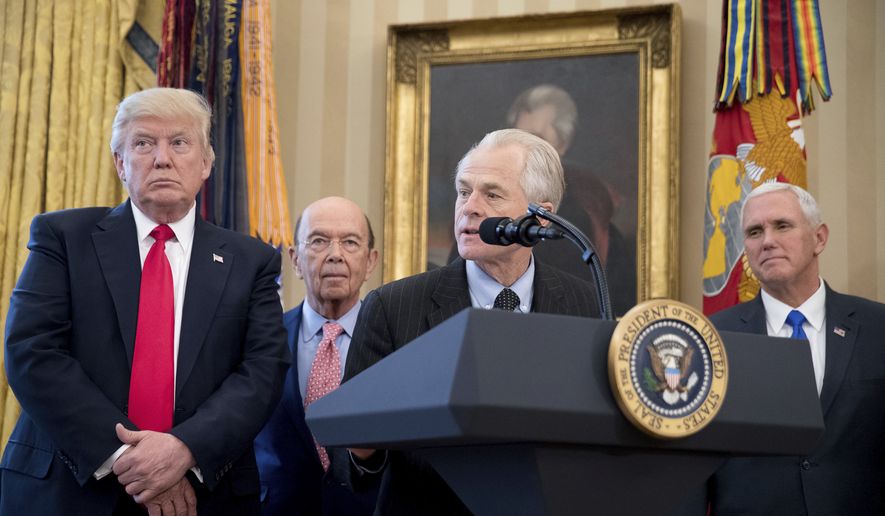White House trade adviser Peter Navarro on Thursday downplayed China’s positive signals, saying the only acceptable outcome was an ironclad deal for Beijing to end trade abuses.
He said China’s gestures, including restoring purchases of U.S. soybeans and reportedly backing off its aggressive policy to dominate high-tech, should not distract from the tough negotiations going on behind closed doors.
“From our point of view, what we must do is hold fast, stay tough, and focus on the prize,” he said on Fox Business Network. “The prize for this country and for the world and for China really is complete structural reform to put an end to all these practices which are disrupting the global economy.”
Still, Mr. Navarro confirmed that China bought at least 500,000 tons of U.S. soybeans. It was the first major agriculture purchase since President Trump and Chinese President Xi Jinping called a truce in the trade war nearly two weeks ago.
The truce marked an acceleration of trade talks with a March 1 deadline to make a deal.
The roughly $180 million purchase of soybeans, which provided welcome relief to American farmers who suffered the most so far on the U.S. side of the trade war, followed several moves that signaled Beijing was making concessions pledged to Mr. Trump.
Beijing also is planning to back off its “Made in China 2025” strategy to dominate high-tech fields that the Trump administration has denounced as a scheme to steal American technology, the Wall Street Journal reported.
In another positive development this week, China announced it would lower car tariffs from 40 percent to 15 percent.
Mr. Navarro stressed that buying soybeans and lowering car tariffs only returned China to its position prior to retaliation against Trump administration’s get-tough policies and tariffs on Chinese goods.
Doubts persisted that China would end unfair trade practices that have vexed the world for decades.
Mr. Trump is pressuring Beijing to end abuses that include high tariffs, theft of intellectual property and forced transfer of technology from American companies doing business in China.
“Most people don’t realize that this story is more than just trade. It’s not just about China buying more stuff from the United States, like soybeans,” said Mr. Navarro.
Underscoring the multi-pronged threat from China, the cyber attack on Marriott hotels that compromised data of more than 500 millions customers was traced to China.
Justice Department and Homeland Security officials told a Senate panel Wednesday that China’s cyber threat and theft of intellectual property posed a significant economic and national security challenges.
• S.A. Miller can be reached at smiller@washingtontimes.com.




Please read our comment policy before commenting.